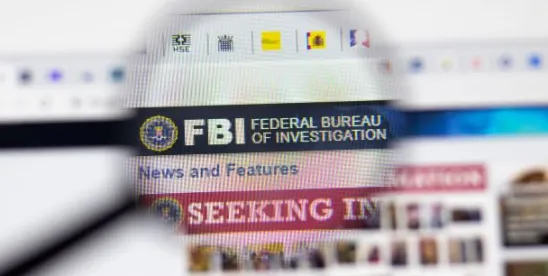As the Department of Justice undergoes a seismic shift under the Trump administration, prosecutors in the Eastern District of New York (EDNY) find themselves at the center of controversy over the prosecution of OneTaste co-founder Nicole Daedone and former sales leader Rachel Cherwitz. The case, which invokes human trafficking laws against meditation instructors, is emerging as a key test of the DOJ’s evolving priorities and its commitment to FBI reform.
The government’s attempt to introduce content from a Netflix documentary as trial evidence—journal entries created specifically for the streaming platform’s 2022 production—has already drawn scrutiny, particularly as the film predated the indictment by only a few months. With allegations of FBI misconduct also mounting, this prosecution may soon face the same intense DOJ oversight that recently rocked the Southern District of New York (SDNY).
Mounting Evidence of FBI Misconduct
A formal complaint filed with multiple federal oversight bodies by OneTaste’s legal team—led by former senior DOJ prosecutor Paul Pelletier—alleges a “pervasive pattern of prejudicial investigatory misconduct.” The 36-page document details allegations against FBI Special Agent Elliot McGinnis, including:
- Participation in Netflix productions while investigating targets
- Instructing witnesses to delete evidence
- Using personal email accounts to evade oversight
- Filing misleading affidavits
- Suppressing Brady material
- Illegally obtaining and utilizing attorney-client privileged materials
Despite defense motions for dismissal and requests for an evidentiary hearing into the FBI’s conduct, EDNY trial judge Diane Gujarati has thus far declined to intervene. However, with the expected confirmation of incoming FBI Director Kash Patel, this case could soon find itself under heightened scrutiny. Patel, whose nomination cleared the Senate Judiciary Committee on February 13, has signaled a commitment to rooting out political bias within the bureau. Senator Chuck Grassley, in supporting Patel’s confirmation, characterized the FBI as being “badly infected with political decision-making” and emphasized the need for transparency and accountability.
The SDNY Shake-Up and Its Implications for EDNY
The upheaval in the SDNY provides a stark warning to EDNY prosecutors. On February 10, Acting Deputy Attorney General Emil Bove ordered SDNY to dismiss corruption charges against New York City Mayor Eric Adams, citing two primary concerns: improper interference with Adams’ 2025 reelection campaign and the diversion of prosecutorial resources away from violent crime and immigration violations.
This decision ignited a firestorm within SDNY, culminating in the resignation of Acting U.S. Attorney Danielle Sassoon after she appealed directly to Attorney General Pam Bondi. DOJ officials responded swiftly, accusing Sassoon of pursuing a “politically motivated prosecution” based on “aggressive” legal theories. The Adams case was subsequently reassigned to DOJ headquarters in Washington, D.C., and seven SDNY prosecutors were terminated in the fallout.
SDNY’s long-standing reputation for operating with relative independence—often referred to as the “Sovereign District of New York”—appears to be a thing of the past under the current DOJ. EDNY prosecutors, who have historically enjoyed similar autonomy, now face the prospect of increased oversight as they navigate this high-profile case.
The Human Trafficking Paradox
On February 5, Attorney General Bondi issued directives instructing federal prosecutors to focus on “the most serious, readily provable offenses,” emphasizing illegal immigration, transnational crime, and human trafficking. Yet, as this directive takes effect, EDNY prosecutors continue to invest significant resources in a novel, single-count forced labor conspiracy case against wellness educators under the Trafficking Victims Protection Act (TVPA). The government’s untested theory of “coercive control” as a form of trafficking has drawn criticism from legal experts, who argue that it blurs the distinction between social pressure and criminal coercion.
The case against OneTaste presents a paradox: at a time when the DOJ is pivoting towards dismantling actual human trafficking operations, EDNY’s six-year-long pursuit of this prosecution may soon come under question. The precedent set by the SDNY shake-up suggests that DOJ leadership is willing to intervene aggressively when a prosecution is deemed misaligned with national priorities.
A Trial Under Increasing Pressure
With jury selection set to begin on May 5, 2025, the ground beneath the OneTaste prosecution is shifting rapidly. Judge Gujarati’s refusal to schedule additional pre-trial conferences suggests confidence in the case, but the broader DOJ realignment paints a different picture.
The question now is not just whether this case will proceed to trial, but whether EDNY prosecutors will maintain their current course in the face of growing federal scrutiny. As the DOJ consolidates control over its regional offices and refocuses its priorities, EDNY must weigh its prosecutorial independence against the new realities taking shape in Washington. If SDNY’s recent upheaval serves as any indication, the days of unchecked autonomy for federal prosecutors in New York may be numbered.




 />i
/>i

